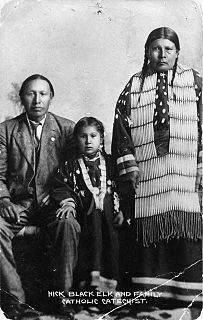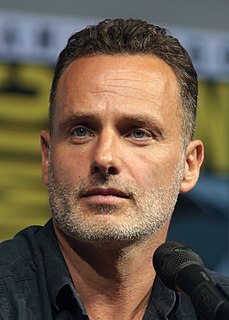A Quote by William Shakespeare
And nothing can we call our own but death
And that small model of the barren earth
Which serves as paste and cover to our bones.
For God's sake, let us sit upon the ground
And tell sad stories of the death of kings.
Related Quotes
Let's talk of graves, of worms, and epitaphs; Make dust our paper, and with rainy eyes Write sorrow on the bosom of the earth.... [W]hat can we bequeath, Save our deposed bodies to the ground?... [N]othing can we call our own, but death... [L]et us sit upon the ground, And tell sad stories of the death of kings: - How some have been depos'd, some slain in war; Some haunted by the ghosts they have depos'd.
It is good to have a reminder of death before us, for it helps us to understand the impermanence of life on this earth, and this understanding may aid us in preparing for our own death. He who is well prepared is he who knows that he is nothing compared with Wakan-Tanka, who is everything; then he knows that world which is real.
We are left with nothing but death, the irreducible fact of our own mortality. Death after a long illness we can accept with resignation. Even accidental death we can ascribe to fate. But for a man to die of no apparent cause, for a man to die simply because he is a man, brings us so close to the invisible boundary between life and death that we no longer know which side we are on. Life becomes death, and it is as if this death has owned this life all along. Death without warning. Which is to say: life stops. And it can stop at any moment.
There would be no chance at all of getting to know death if it happened only once. But fortunately, life is nothing but a continuing dance of birth and death, a dance of change. Every time I hear the rush of a mountain stream, or the waves crashing on the shore, or my own heartbeat, I hear the sound of impermanence. These changes, these small deaths, are our living links with death. They are death's pulses, death's heartbeat, prompting us to let go of all the things we cling to.
The first thing I would like to tell you about death is that there is no bigger lie than death. And yet, death appears to be true. It not only appears to be true but also seems like the cardinal truth of life - it appears as if the whole of life is surrounded by death. Whether we forget about it, or become oblivious to it, everywhere death remains close to us. Death is even closer to us than our own shadow.
Death is nothing to us: for after our bodies have been dissolved by death they are without sensation, and that which lacks sensation is nothing to us. And therefore a right understanding of death makes mortality enjoyable, not because it adds to an infinite span of time, but because it takes away the craving for immortality.
Myths are stories for our search through the ages for truth, for meaning, for significance. We all need to tell our story and to understand our story. We all need to understand death and to cope with death, and we all need help in our passages from birth to live and then to death. We need for life to signify, to touch the eternal, to understand the mysterious, to find out who we are.
I am a man, and men are animals who tell stories. This is a gift from God, who spoke our species into being, but left the end of our story untold. That mystery is troubling to us. How could it be otherwise? Without the final part, we think, how are we to make sense of all that went before: which is to say, our lives? So we make stories of our own, in fevered and envious imitation of our Maker, hoping that we'll tell, by chance, what God left untold. And finishing our tale, come to understand why we were born.
This is what we see when we look up at Rainier, the beauty, the horror, the awe the unbelievability of size that confirms our own consequence on this earth. We look at the mountain, like god and can imagine nothing larger. Its incompressible life-span reminds us of the fleeting mortality of our own bones. It looms over our lives on clear days and and stay present but hidden through the clouds of winter. Like god it remains everywhere forever.
We need to be realistic and recognize that there will be times when we won't be sharing our faith out of an overwhelming sense of joy. When that happens, that's a call to look at our own devotional lives. Are we putting our hearts and minds before the Lord and under his cross everyday? Do we remind ourselves continually that we have been ransomed by the death of the Saviour? When we meditate on Christ's death for us, it doesn't mean that we never have struggles in our obedience, but it does help.
Our time on earth and our energy, intelligence, opportunities, relationships, and resources are all gifts from God that he has entrusted to our care and management. We are stewards of whatever God gives us. This concept of stewardship begins with the recognition that God is the owner of everything and everyone on earth. ... We never actually own anything during our brief stay on earth. God just loans the earth to us while we're here. It was God's property before you arrived, and God will loan it to someone else after you die.




































